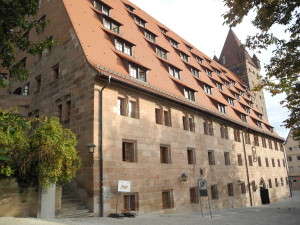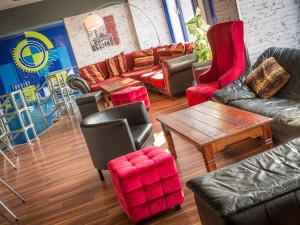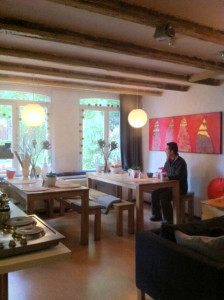European hostels

This hostel in Nuremberg, Germany, is attached to a castle. Photo by Catharine Norton.
For baby boomers, saving money on accommodations can be tougher than for young travelers.
Dormitory-style hostels and CouchSurfing may have much less appeal than for those in their 20s or 30s.
Camping — at least the type (unlike “glamping” or glamorous camping) that leaves you trying to get a decent night’s sleep in a bag on the ground — can be tough on the back (with legitimate concerns that you might not be able to straighten up at all in the morning).
But, as guest poster Jesse Miller contends, “It’s still possible to enjoy a five-star housing experience without paying a five-star price.” The key, Miller says, “is to live like the locals do. This means avoiding more traditional options (such as pricey hotels and resorts) and immersing yourself in opportunities to interact with the… Continue reading
Recently I talked about the new breed of luxury hostels that are popping up around Europe and appealing not only to younger travelers — as hostels traditionally have — but to baby boomer travelers as well.
Now the excellent travel site skift.com has a piece interviewing Josh Wyatt, director of hospitality and leisure at the company that owns Generator Hostels, the leading brand of luxury hostels with eight locations and more on the way. It’s definitely worth a follow-up to hear what he has to say.
For starters, as the skift.com piece points out, Generator is “aggressively targeting” higher-income older travelers by offering a number of guest rooms for singles and couples that include private bath.
For instance, the 154-room Generator Barcelona, which opened this past spring, has devoted more than a fifth of its rooms to singles… Continue reading
Decades ago, when baby boomers were in their 20s and backpacking around Europe, many discovered the joys of staying in youth hostels. The main joy is that they were cheap — really cheap — but they were also good places to meet like-minded travelers, pick up some budget travel tips from them, and maybe even make some new friends in a foreign city.
There were drawbacks: some hostels wouldn’t allow access to your room for several hours during the day; the rooms most often sported dormitory-like accommodations, complete with bunk beds for up to a dozen people, making privacy nonexistent; the bathrooms and showers were invariably down the hall (though so were those in inexpensive European hotels and pensions back in the day); cleanliness was often in short supply; and there was always the possibility of getting your possessions… Continue reading










